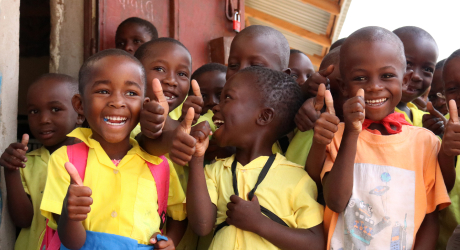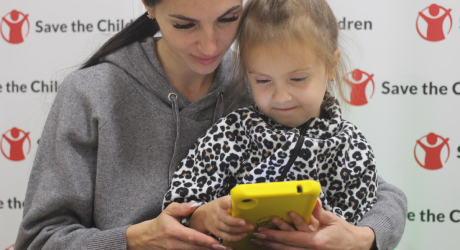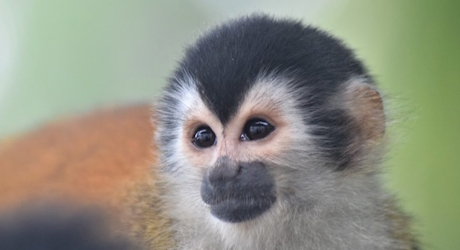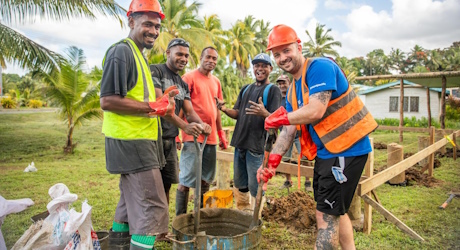Footprints Project
Since 2005, travelers like you have helped us change the world through micro-donations.
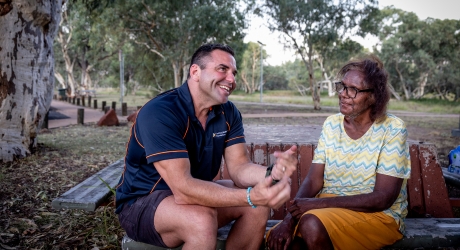
-
A total of
4489
Travelers
-
donated
$25003.27
(100% funded) -
to help improve
Health
-
impacting
250
people -
in
Australia
Project Background
Currently there is a critical shortage of eye health workers in remote and regional Australia, and many doctors lack the knowledge, experience, and skills to deliver culturally responsive care. The COVID-19 pandemic has added to this lack of staff and resources available.
This project supports increased investment in and access to culturally appropriate eye care services to remote and underserved Aboriginal and Torres Strait Islander communities. More specifically, to provide training and support to Aboriginal and Torres Strait Islander health staff, to educate Non-Indigenous Australians on the importance of culturally responsive care and deliver the best services possible to Aboriginal and Torres Strait Islander people.
For example, explaining complex procedures to patients in language that is easy to understand, to ensure patients are comfortable with the procedure they might be going through.
When the patients feel safe, and confident in the services they are receiving they are more likely to come back or to refer the service to their friends or family, and there is better access to high levels of service and cultural care.
Key Project Activities
The Fred Hollows Foundation (FHF) made significant strides to strengthen the capability and coverage of the eye health workforce. FHF funded and supported 10 full-year and 8 part-year positions. Training initiatives included upskilling 5 Aboriginal and 4 non-Indigenous health staff at Nganampa Health Council (NHC) and providing specialized training through the Deadly Vision Centre and Lions Eye Institute. The latter trained 23 health workers in diabetic retinopathy screening and 22 in diabetic eye health.
FHF supported the Central Australian Aboriginal Congress (CAAC) in recruiting an Aboriginal Allied Health Assistant and developing a comprehensive workforce framework in collaboration with Charles Darwin University. Additionally, four Aboriginal or Torres Strait Islander doctors enrolled in Royal Australian and New Zealand College of Ophthalmologists (RANZCO) ophthalmology training program, supported by FHF's partnership with AIDA, which also introduced mandatory cultural competency units for ophthalmologists.
FHF facilitated the work of three Fellows/Unaccredited Registrars at Lions Outback Vision, providing critical services to vulnerable communities. The IUIH cadetship program, supported by FHF, included one Aboriginal optometrist trainee and 12 non-Indigenous optometrists, focusing on culturally responsive care.
Despite challenges such as recruitment issues and coordination for clinical kits, FHF planned for 2024 initiatives including hosting an Aboriginal Medical Student at Lions Eye Institute and developing a scholarship. Future efforts will also focus on increasing Aboriginal representation in optometry through the OCANZ partnership and an Online Hub, aiming to make eye health careers more accessible to Indigenous communities.
Key Project Outcomes
- Training & Workforce Development:
- Trained 57 health professionals and students in eye health.
- Provided funding/support for 10 full-year and 8 part-year positions.
- NHC offered eye health training to 5 Aboriginal and 4 non-Indigenous health staff.
- Deadly Vision Centre trained 1 Aboriginal Health Practitioner student and 2
- medical students.
- Lions Eye Institute trained 23 health workers in diabetic retinopathy screening and
- 22 community workers.
- CAAC recruited an Aboriginal Allied Health Assistant and developed a supportive
- workforce framework.
- Continued support for 4 additional Aboriginal/Torres Strait Islander doctors in
- RANZCO’s program.
- Developed cultural competency units with Australian Indigenous Doctor’s
- Association (AIDA).
- Supported three Fellows/Unaccredited Registrars with Lions Outback Vision
- Service Delivery:
- 20 optometry clinics and 4 ophthalmology clinics delivered by NHC.
- 28 cataract surgeries in Alice Springs.
- 30 cataract surgeries in Cairns.
- 14 cataract surgeries in Rockhampton.
- 227 patients supported to access eye health services.
- 358 patients received eye exams.
- 28 patients underwent diabetic retinopathy screening.
- 259 patients received prescription glasses
Community Involvement
The Fred Hollows Foundation (FHF) collaborated with various partners to strengthen the eye health workforce in 2023. The orthoptist position at Outback Eye Service (OES), supported by the South-Eastern Sydney Local Health District (SESLHD), took on the additional role of coordinating patient access to ophthalmology services. The Regional Implementation Project Officer (RIPO), supported by the New South Wales Rural Doctors Network (NSWRDN), facilitated activities and priority actions for the Western NSW Eye Health Partnership (EHP).
FHF funded two Regional Eye Health Coordinators (REHC) to support North-West and Far-North communities, ensuring smooth eye health assessment, referral, and treatment processes for Aboriginal and Torres Strait Islander people. Additionally, FHF supported the Eye Health Nurse Coordinator (EHNC) at Nganampa Health Council (NHC), who delivered optometry and ophthalmology clinics, as well as retinal photo and trachoma screenings in remote communities.
The Eye Health Assistant, supported by FHF through IUIH, coordinated and facilitated eye health care delivery within IUIH’s allied health care framework. FHF also supported an Aboriginal Liaison Officer (ALO) to enhance and coordinate eye health care with Lions, improving patient access and awareness.
Furthermore, FHF funded CheckUP to purchase eye health equipment, improving patient management in the North-West Hospital and Health Service (HHS). Through these collaborations and initiatives, FHF significantly advanced the capability and coverage of the eye health workforce, particularly for Aboriginal and Torres Strait Islander communities.
What’s Next?
The program is ongoing, with efforts continuing in 2024 and beyond. While significant progress has been made, additional work, training, and infrastructure will be required to sustain and build upon the benefits provided.
Recruitment and retention of key positions remain challenging. The development of a nationally recognized eye health curriculum and increased promotion of eye health careers are essential to address workforce gaps.
Furthermore, ongoing training for health practitioners, support for new roles, and the establishment of coalitions within the Top End and Central Australia regions will be crucial. Continued collaboration with partners like CheckUP, IUIH, and Lions is necessary.
Future initiatives include hosting an Aboriginal Medical Student at Lions Eye Institute, developing a scholarship program, and creating an Online Hub to make eye health careers more accessible to Indigenous communities. These steps will help ensure the long-term sustainability and self-reliance of these communities in managing their eye health needs.
Traveling soon? When you buy travel insurance with us, you can make a contribution towards a cause you care about.
Get a quote